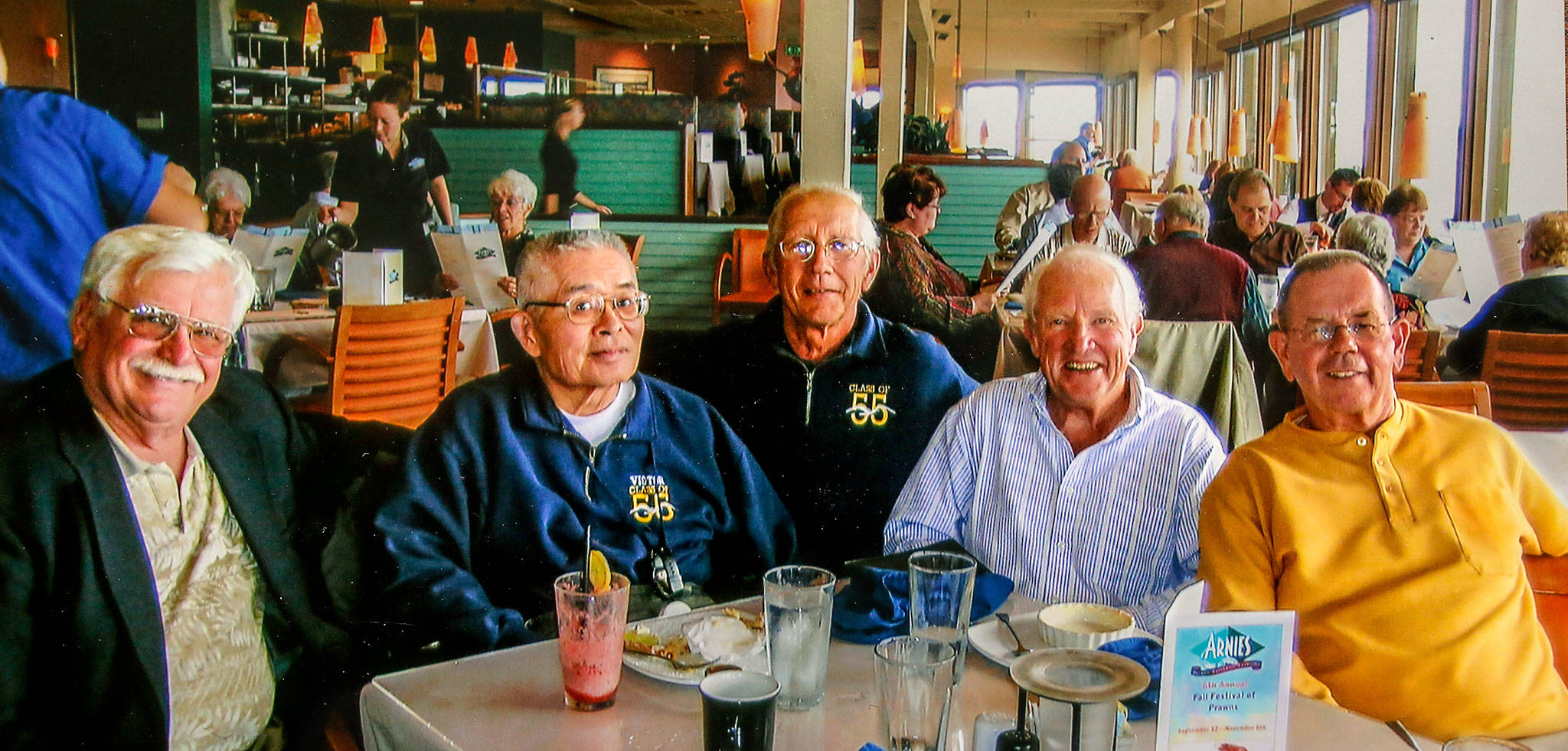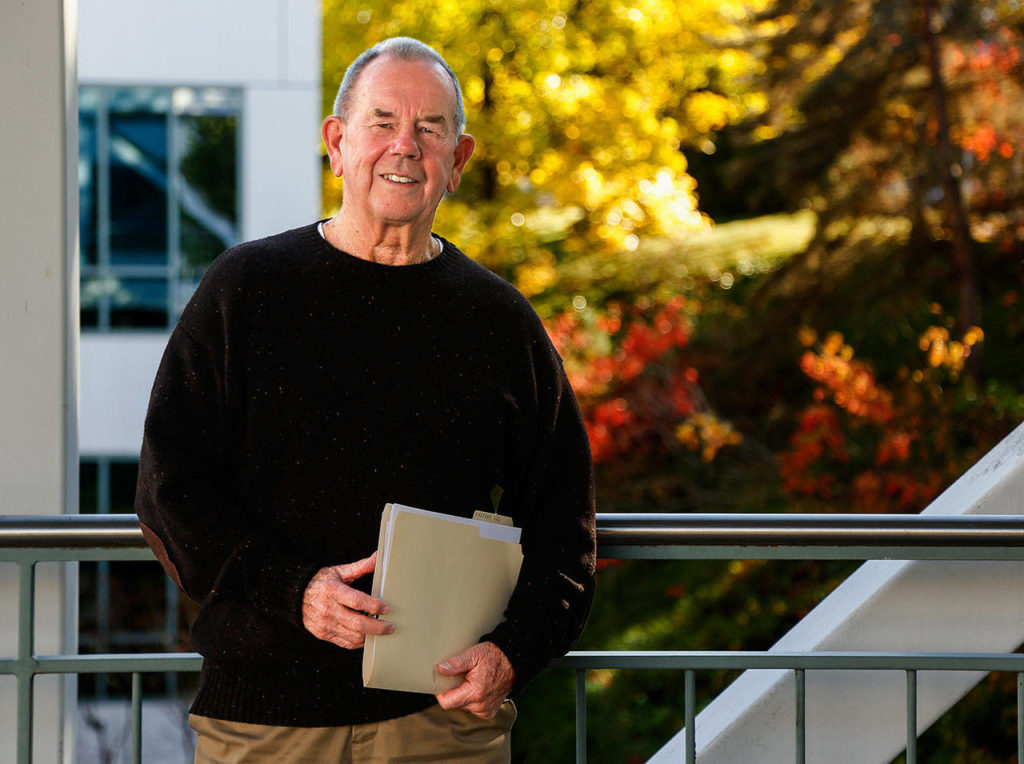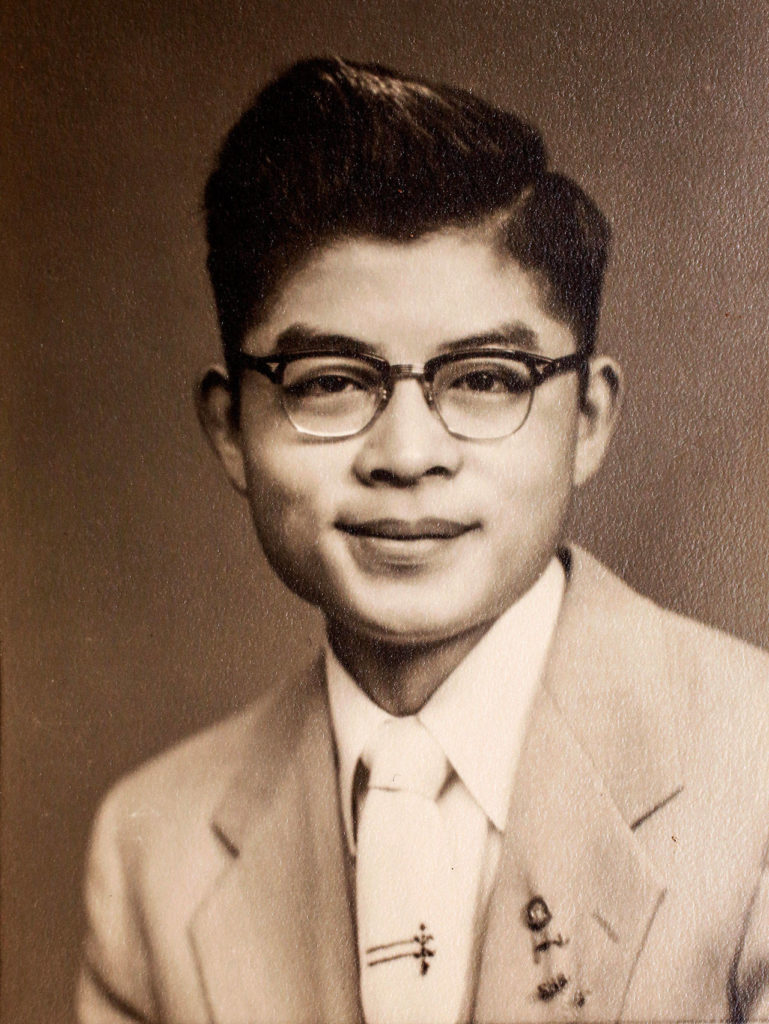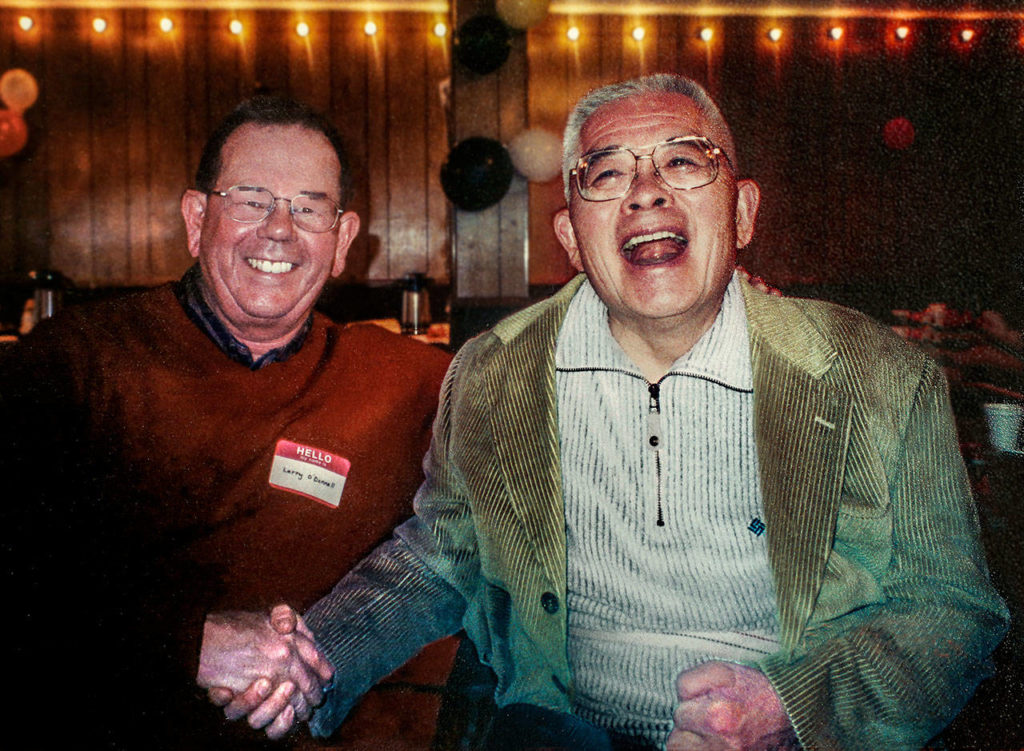The achievements listed next to his senior picture read like a recipe for success. Three-year honor roll, Boys State, pep band, orchestra and class president were just some of Victor Hirakawa’s accomplishments at Everett High School.
They don’t begin to tell the story. Larry O’Donnell, who along with Hirakawa was in Everett High’s class of 1955, has told it in fascinating detail. A local historian, O’Donnell wrote “The Story of Victor Sumio Hirakawa,” a 27-page biography about his friend.
Although it was a brief chapter in Hirakawa’s life, one episode from high school stands out, a win against long odds. At 15, he had moved from Japan, taking a freighter on his own from Yokohama. That was 1952. In the spring of 1954, 13 years after the Japanese attack on Pearl Harbor and less than a decade after World War II ended, this new kid ran for senior class president.
He won, beating the Everett High football team’s co-captain, a popular athlete who’d been in schools here since kindergarten.
“The class of ‘55 achieved a remarkable milestone in electing Victor,” said Jack Holl, the classmate, now 80, who had nominated Hirakawa. “There was still a lot of bitterness, still a lot of anti-Japanese feelings around,” said Holl, who lives in Dallas.
Hirakawa died Oct. 7. He was 82. Retired from a long career in banking, the Edmonds man suffered a debilitating stroke in 2002.
“He asked me 10 years ago if I could write his story,” O’Donnell said. He finished the booklet in 2017, in time for his friend to read it and remember an exceptional life.
Hirakawa was born in Los Angeles, but the family moved to Japan shortly after his birth. His father had moved to the United States in 1919 and lived in Seattle, but after marrying and having a son, returned to his homeland in 1937. Tadaichi “Joe” Hirakawa became a radio broadcaster in Japan. His son wanted to try life in the United States — as his father had as a teen.
After his 13-day voyage, Victor Hirakawa first lived in Seattle, where he delivered groceries and attended school. After moving to Everett, he landed a job at what’s now the Evergreen Lanes bowling alley.
That’s where he met Holl, who had an early-morning job delivering newspapers. His truck route took him to the bowling alley. At 4:30 or 5 a.m., while delivering his papers, he’d stop to visit with Hirakawa and share a cup of tea.
Hirakawa is survived by his wife, Rose Ann Hirakawa; children Lance Hirakawa and Dawn Shuster; and three grandchildren.
Rose Ann, whose maiden name was Baraz, was a young Jewish woman from Brooklyn working at a New York City law firm when she met her future husband. After graduating from the University of Washington, Hirakawa attended law school at New York University.
From her home in Edmonds, Rose Ann Hirakawa said that when they started dating, Victor told her “if we get serious, you’re going to face a lot of prejudice.” Being Jewish, she let him know she’d already experienced prejudice.
They married in 1961, and did face challenges. “After experiencing significant racial prejudice due to their intermarriage, the newlyweds moved back to Seattle to begin their life,” said Hirakawa’s obituary, published Oct. 9 in The Herald.
At Seafirst Bank, Hirakawa began as an installment loan trainee. He became a Seafirst branch manager, breaking a racial barrier, and later focused on Pacific Rim nations. He also worked for the Fluke Corporation, Old National Bank in Spokane, and Mitsubishi Bank.
His civic involvement included being the first treasurer for Second Harvest, now Food Lifeline; membership in Seattle’s Rainier District Kiwanis Club; and serving on the executive council for the Chief Seattle Boy Scout Council, the Governor’s Council for Virginia Mason Medical Center, and as president of the Japan American Society.
He was on the Edmonds Community College Board of Trustees. And in 1997, he spearheaded what O’Donnell’s biography described as “an enormously successful Everett Junior College reunion” for those who attended the school between 1941 and 1958.
“He was really concerned about serving people” said Kathleen Gutierrez, who got to know Hirakawa while she was on Everett Community College’s board. “… He was such a bright man, just a sweet, kind gentleman.”
Dawn Shuster, Hirakawa’s daughter, said her father rarely talked about his journey from Japan. “But he would sometimes talk about the many jobs he held as a high school student, and the challenges of supporting himself,” said Shuster, who lives in Spokane.
When he worked as a grocery delivery boy at Seattle’s Leschi Market, Shuster said, the owner gave him food to eat. “It was a challenge, but he was proud that he came to the U.S. at 15 and was able to be financially independent,” she said. He loved watching the UW Huskies, the Seattle SuperSonics and the Seahawks, playing cribbage, fishing, camping and taking long drives.
Holl noted that Everett High’s fight song includes the lyrics: “I am an Everett man born, an Everett man ‘til I die.”
“I remember telling him that neither one of us were Everett men born,” said Holl, who came from Oregon and went on to teach history at Williams College in Massachusetts, the University of Washington and Kansas State University.
When Holl thinks back on that senior class election — with the campaign slogan “Vote for Vic He’ll Make Things Click” — he also remembers Hirakawa’s opponent, Jim Linden. “He was a really nice guy, a really swell kid, and kind of a modest guy, too,” he said.
Linden, who died in 1993, played football for the University of Oregon after graduating from Everett High. He was drafted by the NFL’s Detroit Lions, and became a coach in the Marysville School District. In 2006, the building that contains the Marysville Pilchuck High School gym was dedicated as the Jim Linden Fieldhouse.
By electing Hirakawa as their leader, Holl said he believes his class “had a message to our parents’ generation — that the war was over.”
Julie Muhlstein: 425-339-3460; jmuhlstein@heraldnet.com.
Talk to us
> Give us your news tips.
> Send us a letter to the editor.
> More Herald contact information.




























